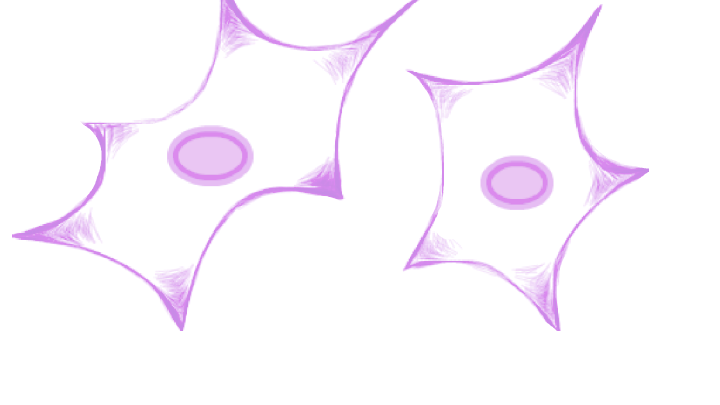Cell Senescence Entries for HSF1
- Cell Types
- Embryonic kidney
- Cell Lines
- HEK293
- Cancer Cell?
- No
- Method
- Knockdown
- Type of senescence
- Stress-induced
- Senescence Effect
- Inhibits
- Primary Reference
- Kim et al. (2012) The heat shock transcription factor Hsf1 is downregulated in DNA damage-associated senescence, contributing to the maintenance of senescence phenotype. Aging Cell 11(4)617-27 (PubMed)
HSF1 Gene Information
- HGNC symbol
- HSF1
- Aliases
- HSTF1
- Common name
- heat shock transcription factor 1
- Entrez Id
- 3297
- Description
- The product of this gene is a transcription factor that is rapidly induced after temperature stress and binds heat shock promoter elements (HSE). This protein plays a role in the regulation of lifespan. Expression of this gene is repressed by phosphorylation, which promotes binding by heat shock protein 90. [provided by RefSeq, Jul 2017].
HSF1 Ontologies
- Gene Ontology
-
Process: GO:6355; regulation of transcription, DNA-templated
GO:6397; mRNA processing
GO:51028; mRNA transport
GO:6281; DNA repair
GO:6974; cellular response to DNA damage stimulus
GO:45944; positive regulation of transcription by RNA polymerase II
GO:122; negative regulation of transcription by RNA polymerase II
GO:1900034; regulation of cellular response to heat
GO:165; MAPK cascade
GO:8284; positive regulation of cell population proliferation
GO:6357; regulation of transcription by RNA polymerase II
GO:120162; positive regulation of cold-induced thermogenesis
GO:9299; mRNA transcription
GO:1903936; cellular response to sodium arsenite
GO:34605; cellular response to heat
GO:1900365; positive regulation of mRNA polyadenylation
GO:34622; cellular protein-containing complex assembly
GO:45931; positive regulation of mitotic cell cycle
GO:71276; cellular response to cadmium ion
GO:51091; positive regulation of DNA-binding transcription factor activity
GO:71480; cellular response to gamma radiation
GO:71280; cellular response to copper ion
GO:2001033; negative regulation of double-strand break repair via nonhomologous end joining
GO:31333; negative regulation of protein-containing complex assembly
GO:34620; cellular response to unfolded protein
GO:45651; positive regulation of macrophage differentiation
GO:61408; positive regulation of transcription from RNA polymerase II promoter in response to heat stress
GO:72738; cellular response to diamide
GO:6952; defense response
GO:7584; response to nutrient
GO:9408; response to heat
GO:10243; response to organonitrogen compound
GO:10628; positive regulation of gene expression
GO:10629; negative regulation of gene expression
GO:10667; negative regulation of cardiac muscle cell apoptotic process
GO:14070; response to organic cyclic compound
GO:14823; response to activity
GO:32355; response to estradiol
GO:33574; response to testosterone
GO:35865; cellular response to potassium ion
GO:42531; positive regulation of tyrosine phosphorylation of STAT protein
GO:43200; response to amino acid
GO:43280; positive regulation of cysteine-type endopeptidase activity involved in apoptotic process
GO:70301; cellular response to hydrogen peroxide
GO:71222; cellular response to lipopolysaccharide
GO:71230; cellular response to amino acid stimulus
GO:71392; cellular response to estradiol stimulus
GO:71407; cellular response to organic cyclic compound
GO:71466; cellular response to xenobiotic stimulus
GO:71478; cellular response to radiation
GO:90084; negative regulation of inclusion body assembly
GO:90261; positive regulation of inclusion body assembly
GO:1901215; negative regulation of neuron death
GO:1901652; response to peptide
GO:1902512; positive regulation of apoptotic DNA fragmentation
GO:1904385; cellular response to angiotensin
GO:1904528; positive regulation of microtubule binding
GO:1904843; cellular response to nitroglycerin
GO:1904845; cellular response to L-glutamine
GO:1990910; response to hypobaric hypoxia
GO:1990911; response to psychosocial stress
Cellular component: GO:5634; nucleus
GO:5737; cytoplasm
GO:5654; nucleoplasm
GO:5829; cytosol
GO:5856; cytoskeleton
GO:5694; chromosome
GO:1990904; ribonucleoprotein complex
GO:48471; perinuclear region of cytoplasm
GO:775; chromosome, centromeric region
GO:16605; PML body
GO:5815; microtubule organizing center
GO:776; kinetochore
GO:922; spindle pole
GO:5813; centrosome
GO:785; chromatin
GO:97431; mitotic spindle pole
GO:97165; nuclear stress granule
GO:101031; chaperone complex
GO:791; euchromatin
GO:792; heterochromatin
Hide GO termsFunction: GO:3677; DNA binding
GO:3700; DNA-binding transcription factor activity
GO:43565; sequence-specific DNA binding
GO:42802; identical protein binding
GO:31490; chromatin DNA binding
GO:5515; protein binding
GO:978; RNA polymerase II cis-regulatory region sequence-specific DNA binding
GO:981; DNA-binding transcription factor activity, RNA polymerase II-specific
GO:1227; DNA-binding transcription repressor activity, RNA polymerase II-specific
GO:1990837; sequence-specific double-stranded DNA binding
GO:19901; protein kinase binding
GO:51879; Hsp90 protein binding
GO:46982; protein heterodimerization activity
GO:43621; protein self-association
GO:1990841; promoter-specific chromatin binding
GO:31072; heat shock protein binding
GO:140296; general transcription initiation factor binding
GO:976; transcription cis-regulatory region binding
GO:1162; RNA polymerase II intronic transcription regulatory region sequence-specific DNA binding
GO:61770; translation elongation factor binding
GO:97677; STAT family protein binding
GO:98847; sequence-specific single stranded DNA binding
Homologs of HSF1 in Model Organisms
- Caenorhabditis elegans
- hsf-1
- Danio rerio
- hsf1
- Drosophila melanogaster
- Hsf
- Mus musculus
- Hsf1
- Rattus norvegicus
- Hsf1
- Schizosaccharomyces pombe
- hsf1
In other databases
- GenAge model organism genes
- A homolog of this gene for Caenorhabditis elegans is present as hsf-1
- GenAge human genes
- This gene is present as HSF1
- GenDR gene manipulations
- A homolog of this gene for Caenorhabditis elegans is present as hsf-1
External links
- OMIM
- 140580
- Ensembl
- ENSG00000185122
- Entrez Gene
- 3297
- UniGene
- 530227
- 1000 Genomes
- 1000 Genomes
- HPRD
- GenAtlas
- HSF1
- GeneCards
- HSF1
